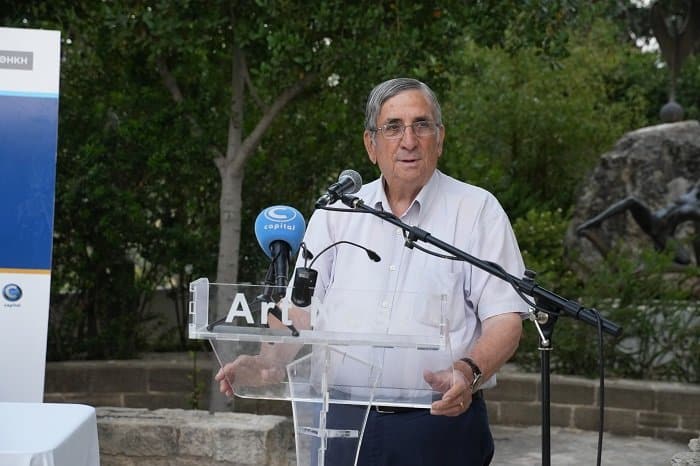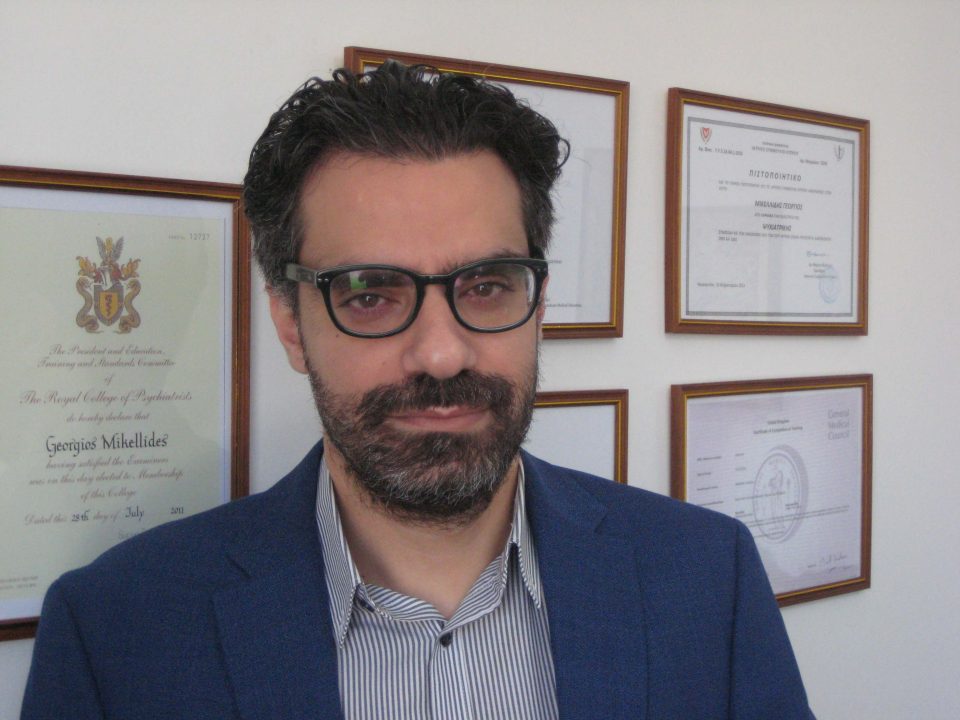Corruption has been a major election issue but tackling it will take far more than cliched statements
Veteran politician Christos Pourgourides has called on the public going into the elections to have an “I am Spartacus” moment in how they view and tackle corruption.
The former long-standing Disy MP told the Cyprus Mail that he doesn’t see change coming top-down from the state and through its institutions but instead placed the burden on voters and follow in the footsteps of the slave Spartacus who stood up to his Roman overlords, prompting others to follow suit.
“From above I expect nothing, but below there is some hope because there are tens of thousands of honourable people out there, and it’s up to those honourable people to create the conditions for us to enjoy better days,” he said.
Pourgourides emphasised that corruption is not simply a political problem, but it goes hand in hand with the attitudes of society.
“Nowadays, swindling someone and getting away with it is viewed as being cunning… To be able to cheat and steal and then get away with it is considered as just outsmarting the others,” he added.
But what does ‘doing something about it’ look like, how does one chisel away at a seemingly immovable mountain?
“Say when you go to the doctor and they charge you €50 but don’t offer a receipt, it’s up to you to press them to give you one, or threaten to report them – it’s your duty, and a serious one at that, because in practice by not getting a receipt you as the taxpayer are being cheated, not some other person,” he explained.
The 77-year-old former MP lamented that we see these small acts daily which pile up and create a mountain and “we think it’s not my place to do something about it and we just shut up”.
But in a small and closely knit society, a person may be fearful of being the first to put their head above the parapet – missing out on a promotion, being ostracised and so on.
“If you’re on your own you can feel isolated – but once someone comes out and says something and others follow, then suddenly we’re the majority. Of course there is a justified fear that if you go out on your own and do it then there will be a cost,” he said.
So why then don’t more people try and do something about it? Many seeking change were disappointed at the lukewarm domestic reaction and feeble demonstrations following the passport scandal, for example.
Could it be that the current set up benefits enough people enough of the time, so there’s no real push for major change?
“No, I don’t agree with that – the reason for this inaction, which certainly is the case, is that people say ‘what, it’s up to me to change it?’ and the answer is ‘yes, yes, it is’,” Pourgourides said.
The pervasive corruption and lack of punishment for seemingly blatant violations has turned many off from politics, which psychiatrist George Mikellides puts down to our society becoming inflicted with “learned helplessness”.
Emphasising his point, he used the analogy of a dog locked in a cage – at first it will bark and bark, but after days of nothing happening it will just give up and accept its lot.
Indeed, a Cyprus Broadcasting Corporation (CyBC) commissioned poll in November found that 70 per cent of respondents believe that corruption is endemic and only 22 per cent believed it can be eradicated.
That’s a steep uphill struggle for those hoping that change will come from the public – only one in five seem to believe it can happen.
As to how we got to this point, Pourgourides offered that there are no role models to promote the values which are required to tackle corruption.
“When people see a president or an archbishop doing acts which they themselves would not do then people will start mimicking it – ‘well, if the president does it why shouldn’t I?’” he explained.
Does a society not lose respect for the law if they deem that a section of the population does not abide by the rules?
“Certainly, there’s a climate of non-punishment, say when the local policeman knows that so and so has committed such and such a crime, but no punishment has been handed out, then how can anyone be called a criminal?”
Asked about the impact of non-punishment, Mikellides agreed, stating that people look at the scandals abroad and how politicians there resign over comparatively much smaller and seemingly insignificant issues.
“Someone will say ‘well what can I do about it anyway, they control everything, the police’, and it’s a terrible thing to see happening,” he said.
Mikellides warned that living in conditions in which people do not feel that they have agency is a heavy weight.
Those seeking change often place their hopes on the younger, up and coming generations. The thinking goes that once the old guard – “well that’s just the way things were done then” – leave office, the new generation will rule differently.
Pourgourides laughs quietly. “I’m laughing because I’m a 77-year-old and for 50 years I’ve been thinking that each year we’ll realise something and do better – so I don’t know, will we reach a point where we can’t go any lower and realise we have to change?
“I had that positivity towards the youngsters, you know – watching them grow up, until about the age of 17-18 they have healthy attitudes and outlooks, high moral standards. But from then on they start seeing things somewhat differently, there are definitely positive prospects, but again it depends on whether in society we can establish some standards which people want to work towards. I don’t see that happening at the moment though,” he said.
“Old dinosaurs give birth to young dinosaurs.”

Veteran politician Christos Pourgourides says change must come from the bottom up
Mikellides does see change on the horizon, although it does appear to be a way off.
“There are changes, but with small steps – as the population increases, the changing media landscape, with these small steps there is more exposure so in a way there are more checks on what’s happening,” he said.
Summing up the apathy expressed by some, he said that the three main candidates were all close partners of the current president and people question where the change will come from.
‘So, there may be small changes here or there, but to win the presidency there is a certain extent of clientelism, or having promised this family or that family certain positions or access – and then suddenly the president will become objective and choose solely based on merit?”
But Mikellides also pointed towards greater EU checks and balances, optimistic that we’re moving towards a future where the checks won’t only be happening at a local level but with greater international scrutiny, too.
For Pourgourides, however, the emphasis couldn’t be clearer: society’s attitudes must change – don’t expect some sheriff to turn up and clean up the town for you.
But aren’t there some silver linings – I asked – pointing to the recently established anti-corruption authority.
“Well, personally I don’t have high expectations – mainly because corruption is stamped out once attitudes change, and that is not happening,” Pourgourides warned.
He explained that proving corruption in court is challenging – getting witnesses, evidence, details accounts of backroom dealings – but that in countries such as Sweden and Finland, once corruption is proved; then those guilty are punished harshly.
“However in Cyprus despite the fact that we’re all aware that there was dirty dealing, it’s very rare for people to end up in court and it’s even rarer for them to be punished,” he emphasised.
“We’ll have to see, if it [anti-corruption authority] just comes out every so often with a report that states there was corruption here and there, instead of actually doing something then it will fail,” he added.
In thinking about writing this article, I pressed a friend of mine on why he won’t vote and why he has no interest in politics.
“From the moment that I go to some government office and there’s a queue of 15 people but some person just cuts the line because they know the secretary, what does that tell you?” he asked.
“No one does anything, even though the secretary knows that’s corruption, her contact knows it’s corruption, and so does everyone else in the room – it’s done so out in the open and so blatantly.
“If even the secretaries are blatantly corrupt, then what do you think the politicians and others do behind the scenes?”







Click here to change your cookie preferences